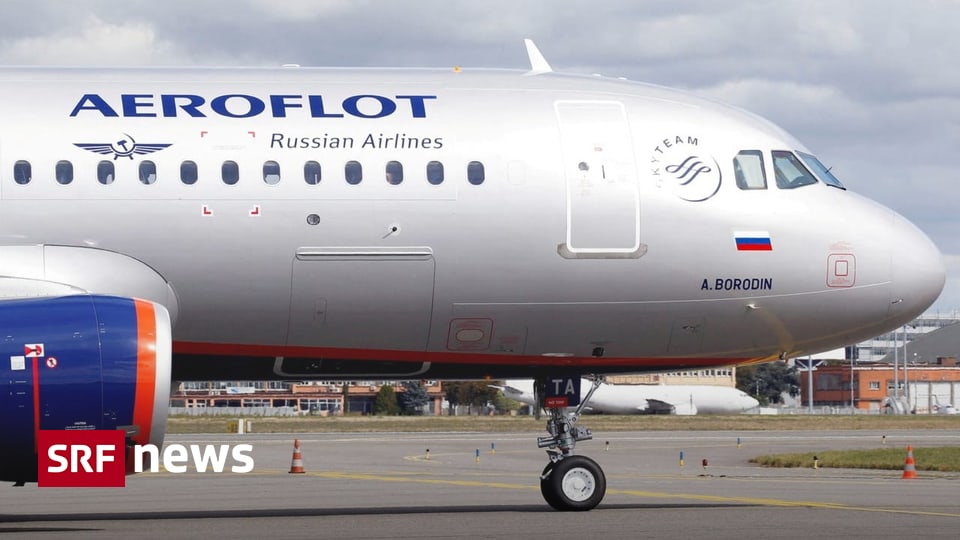The effects of Western sanctions on Russia are severe – especially in the field of aviation, which is necessary in a country as large as Russia. Without Western technology and Western money, not a single civilian airliner takes off in Russia.
International sanctions hit Russian aviation to the core – this was shown by Aeroflot, the largest airline in Russia, for example: its fleet consists of 186 aircraft. By far, the bulk – 177 aircraft – comes from Airbus and Boeing. Only 9 machines of Russian origin.
And what applies to Aeroflot is also true for the majority of other airlines, explains Max Oldorf, a consultant at the CH-Aviation Flight Information Service: “Over the past 10 or 15 years, Russian aviation has significantly modernized. And that’s what they’ve done with Western planes.” .
Western technology was also essential for modernization. Even the only modern plane made in Russia – a regional jet made by Sukhoi – is based on Western technology. “The engines come from Western countries, and the avionics in the cockpit are also Western,” explains Uldorf. Penalty provisions also apply to these parts.
Sooner or later, the planes will not be able to take off.
Uldorff stresses that even if you fly a Russian jet in Russia, you will eventually get to the point where there are no other spare parts. Because from now on it is forbidden to deliver aircraft spare parts to Russia. The wear of materials in the aircraft is high and therefore it must be maintained regularly. Even maintenance work by Western companies is no longer permitted.
The consequences are predictable: sooner or later planes won’t be able to take off, says Laurent Chassot. He is a partner at gbf-Anwälte in Geneva and specializes in aviation law: “It’s happening very quickly. Spare parts are needed very regularly and if they are not allowed to be exported to Russia, the aircraft will very quickly become unflyable and may not be operated anymore.”
Space is small
Attorney Chasseau explains that purchasing parts in other ways is theoretically possible, but difficult. Since US sanctions in particular have also had an extraterritorial effect — that is, beyond national borders: spare parts from third countries cannot simply be resold to Russia, according to Laurent Chasseau. “In the United States, people are not only talking about export controls, but also about controls that prohibit the resale of goods from the United States to third countries.”
So the range is small. Thus, Russia is in the same situation as Iran and North Korea for years. In addition, Russian aviation depends not only on the West from a technological point of view, but also on the financial side. This is also evidenced by the example of Aeroflot: the Russian airline “owns” only 37 out of 186 aircraft. The rest is leased, mostly from companies in Europe.
Because of the penalties, all of these leases must now be terminated – by the end of March. This raises a question, says aviation expert Max Oldorf: “Will these planes be returned or simply ‘nationalised’, that is, confiscated by Russia?”
The first Russian airlines have already indicated that they will not return the chartered planes. Although they can still fly for a moment with the confiscated aircraft, at some point the question of spare parts arises. Thus, Western sanctions take effect over time and eventually lead to a steadily shrinking of Russia’s aircraft fleet.

“Tv expert. Hardcore creator. Extreme music fan. Lifelong twitter geek. Certified travel enthusiast. Baconaholic. Pop culture nerd. Reader. Freelance student.”





More Stories
Mercedes-Benz recalls 261,000 SUVs
With a private cabin Markets: Aegean flies on long-haul flights with the Airbus A321 LR
USA: The great achievement of Donald Trump